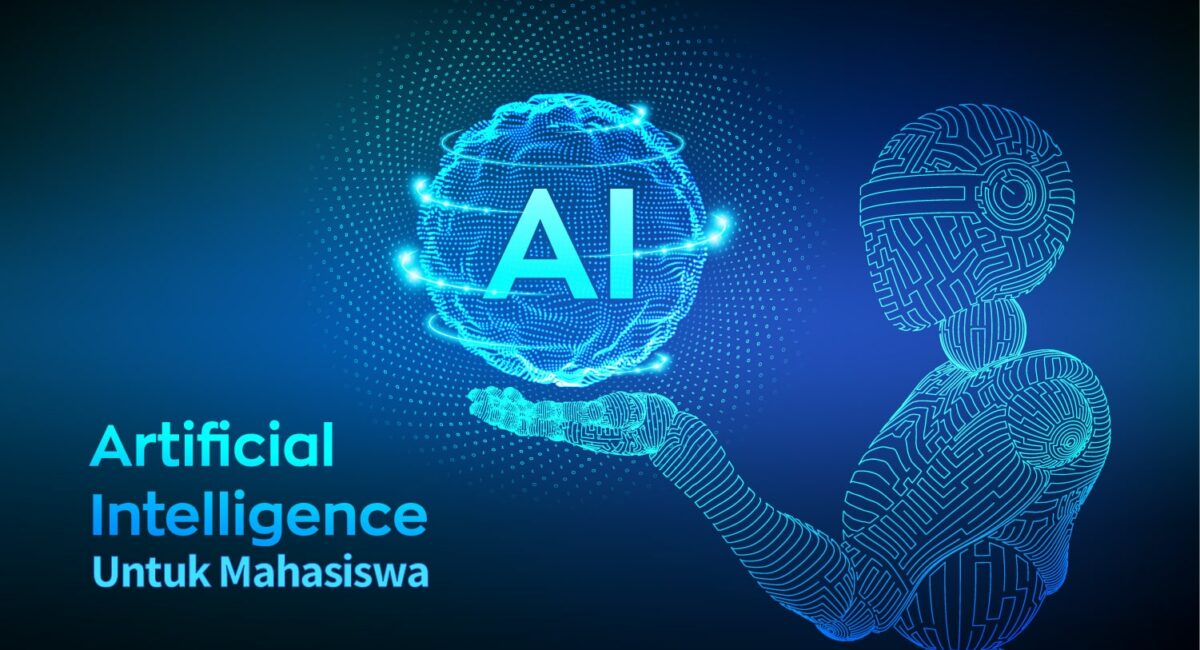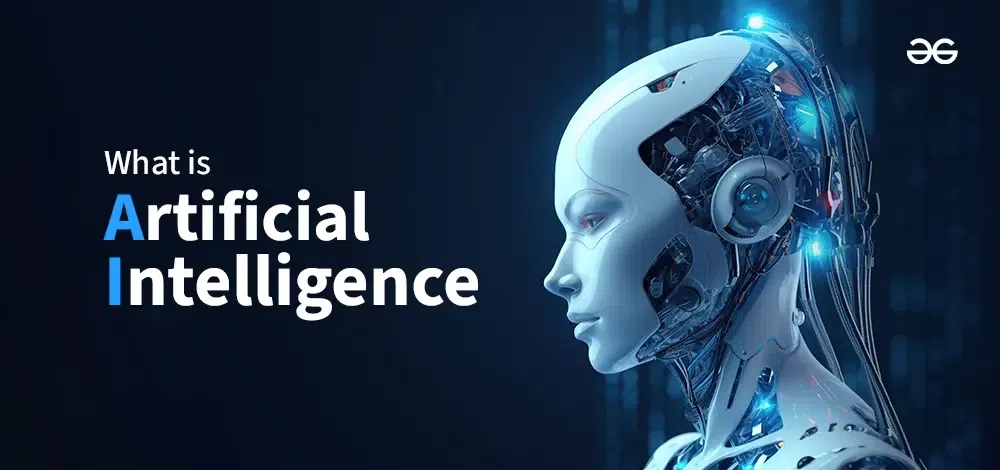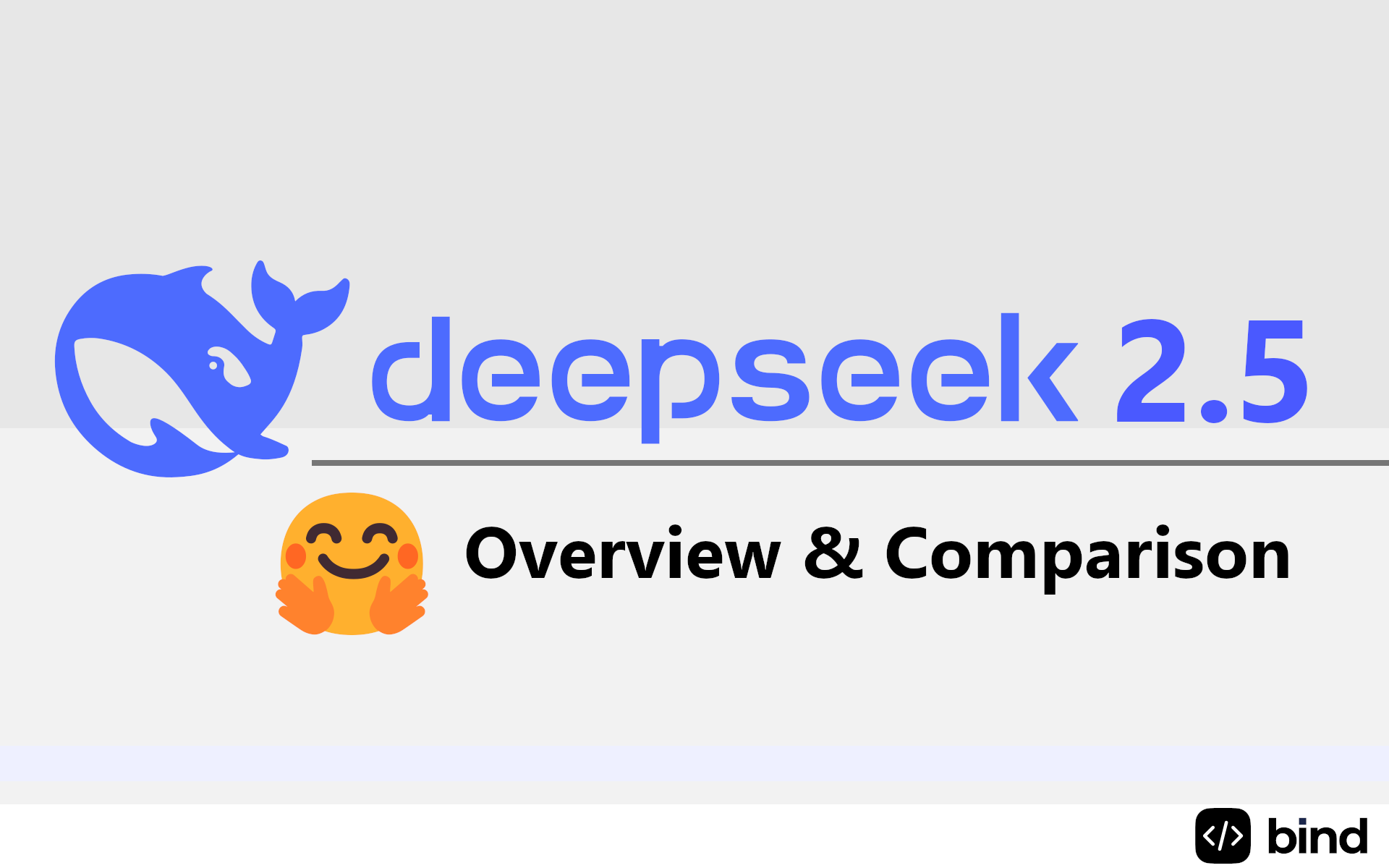
We might make money when you click links to our partners. Learn More.

What is artificial general intelligence (AGI), and why does it matter? As one of the most talked-about topics in technology today, it has stimulated a race amongst top business like OpenAI and Google to turn this cutting-edge idea into reality. Understanding AGI is necessary since it has the potential to revamp markets, impact our society in extensive ways, and alter the method we connect with innovation. Here's what you require to learn about what it might be able to do, how it might change industries and fields, and the considerable difficulties facing its development.
KEY TAKEAWAYS
• AGI differs from standard AI in crucial methods in that it would have the ability to think, learn on its own, and adjust to new obstacles like humans unlike conventional AI, which is designed for specialized tasks and runs within a restricted scope. It requires people to update and refine capabilities. (Jump to Section).
• Once it ends up being a reality, AGI would have the ability to make remarkable advances in numerous fields, including health care, research study, and financing sectors. (Jump to Section).
• Creating AGI is hard due to the research study challenges that consist of technical, ethical, and social problems. Addressing these challenges is main to maintaining the safe and positive advancement of this innovation. (Jump to Section)

Featured Partners: setiathome.berkeley.edu Expert System Software
Find out more
TABULATION
What is Artificial General Intelligence (AGI): A Clear Definition.
Understanding AGI vs Traditional AI.
Potential Applications of Artificial General Intelligence.
Challenges in Artificial General Intelligence Research.
3 Introductory AGI Courses to Consider.
Frequently Asked Questions (FAQs).
Bottom Line: Why Knowing What Is Artificial General Intelligence Matters.
What is Artificial General Intelligence (AGI): A Clear Definition
Artificial basic intelligence, or AGI, describes a type of artificial intelligence (AI) that can translate, find out, and perform any cognitive job that a human can do. Unlike today's AI, which is developed to handle specific jobs like advising products or processing information, AGI would be able to adapt to new difficulties and apply understanding across numerous fields. Simply put, this sophisticated kind of AI would think and reason like a human. While AGI holds terrific potential, it's worth keeping in mind that it is still a concept today, with no totally developed systems offered yet.
Key Capabilities of Artificial General Intelligence
AGI would have a series of abilities that mimic human intellectual functions, so it can perform jobs beyond the narrow focus of the existing AI tools in the market. Some key abilities consist of the following:
Human-Like Reasoning: The innovation would be able to understand and make decisions the way humans do. It would believe critically, resolve issues, and develop services based upon its own experiences and previous interactions, comparable to how we apply past understanding to new situations.
Solving Unfamiliar Problems: Among AGI's strengths is its prospective to tackle brand-new issues. Unlike traditional AI, which is trained to perform specific jobs, AGI would have the capacity to deal with issues it hasn't been straight trained to solve. It could determine how to approach a completely new difficulty, similar to humans do when confronted with something we have actually never experienced before.
Self-Learning and Adapting: AGI might fine-tune its skills and gain from experience, without the requirement to be by hand updated each time. It would observe and analyze data, gain from errors, and discover much better ways to complete tasks in time. This suggests AGI might adapt to brand-new situations and improve at tasks on its own.
Using Knowledge Across Different Areas: AGI would have the ability to take what it finds out in one area and use it to other tasks. For example, if it found out how to resolve mathematics issues, it could utilize that knowledge to deal with difficulties in other fields, like science or business. The capability to transfer skills throughout different areas is something human beings do naturally and would make the technology flexible in varied sectors.
Understanding and Responding to Emotions: Recognizing and reacting to human feelings would likewise be within AGI's abilities. This would be essential in settings where understanding individuals's sensations matters, such as health care, customer support, or social scenarios. By reacting to emotions appropriately, AGI would be much better equipped to work with human beings in a reliable way.
Understanding AGI vs Traditional AI
The table listed below supplies a snapshot of the significant differences in between AI and conventional or narrow AI by highlighting their capabilities, versatility, and existing status.
AGI would have the capability to think, find out autonomously, and adapt to brand-new obstacles like humans. However, it is still theoretical and has actually not been recognized yet. On the other hand, conventional AI is built for specific tasks and operates within a repaired scope. It can not adjust to brand-new tasks without human input.
For instance, an AGI might learn to detect medical conditions, then use that knowledge to establish tailored treatment plans-and even change its approach based upon the client's development. Additionally, it could use this analytical capability to jobs in totally various fields, such as creating service techniques or advising on ecological preservation. On the other hand, traditional AI, like a diagnostic tool, can only analyze medical data for particular conditions. It can not adapt to other areas or enhance on its own.
Potential Applications of Artificial General Intelligence
While AGI isn't here yet, its possible applications span many fields and hold terrific pledge of drastic improvements in numerous sectors. Without being restricted to specific jobs like narrow AI, AGI would be extremely flexible and might use its abilities to solve multi-disciplinary issues. It might get rid of difficulties currently beyond the abilities of existing AI applications.
Transforming Healthcare

AGI would change the game in healthcare by detecting complex and rare diseases with greater precision, even in cases where symptoms are unclear or overlap with multiple conditions. It might create extremely individualized treatment plans by studying patient history, genetic details, and real-time health information. In addition, AGI could accelerate drug discovery, recognizing possible treatments in weeks rather than years by processing huge datasets and running predictive simulations.
Advancing Scientific Research
In scientific research study, AGI would be able to imitate experiments, evaluate elaborate datasets, and generate hypotheses. It might speed up developments in quantum physics, genomics, and climate science. By incorporating understanding from different domains, the innovation could reveal connections and solutions that might otherwise go undetected by standard AI.
Improving Industry
Organizations in the industrial field could use AGI to increase performance in real-time by handling whole supply chains. It would forecast and resolve interruptions before they happen. In production, it could manage autonomous factories, optimizing production procedures while maintaining security and quality requirements. Its ability to change to changing scenarios would make it an important tool in industrial environments.
Enhancing Business Strategy
AGI might enhance organization decision-making by evaluating market patterns, consumer habits, and functional data to find chances and threats. In contrast to narrow AI systems, AGI would innovate services to challenging service issues, such as dealing with economic uncertainty or forecasting long-lasting market shifts. Its ability to find out from varied sources would empower businesses to remain competitive.
Redefining Finance
In the financial sector, AGI might increase forecasting accuracy by finding patterns in large quantities of monetary information, so financiers and organizations can make informed choices. It would also be able to spot scams in real-time by recognizing subtle abnormalities that standard AI systems might miss out on. Additionally, AGI could build more robust monetary models, considering complicated variables and circumstances to mitigate risks.
Challenges in Artificial General Intelligence Research

Developing AGI is among the most ambitious goals in technology, but it features numerous difficulties. These challenges consist of technical, ethical, wiki.vst.hs-furtwangen.de and societal areas, making AGI advancement a complex and multi-faceted process. Overcoming the following obstacles is identical to guaranteeing safety, maintaining ethical standards, and carefully preparing how AGI's intro and usage will impact individuals, markets, and society as a whole:
Making AGI Truly Flexible: AGI would require to deal with a large range of issues and adapt to new circumstances, similar to humans. Building a system of versatility is incredibly difficult due to the fact that current AI tools are not designed to believe or discover at this level of elegance.
Massive Computing Needs: To reproduce human intelligence, AGI would require enormous quantities of calculating power to process information from varied sources rapidly. Determining how to make such systems powerful and effective enough for real-world usage is a substantial challenge.
Understanding Human Intelligence: rocksoff.org We do not fully comprehend how human thinking works, galgbtqhistoryproject.org particularly complicated elements like instinct or consciousness. Without this understanding, it's challenging to develop devices that can imitate human-like thinking.
Making AGI Safe and Ethical: AGI might possibly be misused, like to develop prejudiced systems or damaging tools like self-governing weapons. Researchers must make certain that AG is developed properly and follows stringent ethical guidelines. This is a difficult task that requires international collaboration.
Keeping It Under Control: There's a risk AGI might act in methods we don't expect, specifically considering that it would have the capability to find out and alter with time. Ensuring that these systems stay aligned with human worths and are safe to utilize is one of the greatest obstacles in AGI research study.
Impact on Jobs and Society: If AGI comes true, it could replace tasks or trigger economic inequality by benefitting some groups more than others. Getting ready for these social impacts is just as essential as building the innovation itself.
High Costs and Resources: Researching AGI requires a lot of cash, time, and professional knowledge. Not all companies have these resources, decreasing development and leaving smaller sized businesses out of the race.
3 Introductory AGI Courses to Consider
Familiarizing yourself with AGI can provide you an one-upmanship, whether you want to advance your career in AI or just want to remain notified about emerging technologies. The following initial courses can assist you get a deeper understanding of what synthetic basic intelligence is, so you can solidify your knowledge about this promising AI advancement.
Artificial General Intelligence (AGI): An Introductory Course on Udemy
This Udemy course offers an essential understanding of AGI, suitable for newbies without any prior experience. The course covers pertinent subjects, consisting of the foundations of AI, the essentials of AGI, and the current trends in the field. It also explores the benefits, threats, and obstacles related to AGI, equipping you with insights into what the sophisticated technology can attain. The whole course consists of 15 lectures and can be finished in roughly 45 minutes. Upon conclusion, thatswhathappened.wiki you will receive a certificate to strengthen your qualifications in the job market. This introductory course costs $24.99.
Intro to Artificial General Intelligence (AGI): Future of AI on Udemy
Udemy's initial course offers a detailed summary of AGI for learners without any technical background. It talks about the historic context and foundation of AGI, the distinctions between narrow AI and AGI, library.kemu.ac.ke and ethical considerations surrounding its advancement. In addition, it attends to future trends in AI and AGI, shedding light on the challenges and chances that lie ahead. Spanning one hour and 46 minutes, the course includes 39 lectures, on-demand video, and downloadable resources. It likewise has a dry run at the end to reinforce your understanding. You will be awarded a certificate when you finish the course. It is available as part of Udemy's premium strategies, beginning at $20 each month, or as a separate purchase of $49.99.
Artificial General Intelligence (AGI) on Udemy
This Udemy course brings a clear and concise intro to the topic, with on-demand videos and 22 lectures. It elaborates on major AGI ideas and the role of robotics in AGI advancement. It also analyzes the ethical, software application, utahsyardsale.com and hardware obstacles in developing AGI. The course supplies quizzes to evaluate your understanding and a certificate of completion. Priced at $44.99, it is made for learners at any level, making it available and valuable for anyone who wishes to find out more about AGI.
Frequently Asked Questions (FAQs)
Achieving AGI could transform markets, improve decision-making, and lead to considerable developments in innovation. However, it likewise raises concerns about principles, job displacement, and the need for proper regulation to ensure it is established safely and responsibly.
Experts disagree on how far we are from achieving AGI. Sam Altlman of OpenAI believes in 2025, AI representatives might join the labor force, ultimately leading the way to AGI advancement. On the other hand, a study of AI researchers puts the median quote around 2047. Despite quick AI developments, current systems are still restricted to narrow tasks and lack the broad, flexible thinking of humans-so AGI is likely still decades away.
The concept of AGI fully replacing human beings is still discussed. Although it's likely that AGI will assist us by taking over recurring tasks, there is a possibility that it could displace specific tasks. That said, rather than entirely replacing human beings, AGI is anticipated to work along with us, handling technical responsibilities while we focus on jobs that need imagination and empathy. At the end of the day, the impacts of AGI will depend upon how society chooses to handle and incorporate it.
Bottom Line: Why Knowing What Is Artificial General Intelligence Matters
Understanding synthetic basic intelligence is vital since this technology could change industries, solve challenging issues, and transform how we utilize AI. But as we begin to establish AGI, we must thoroughly address numerous challenges, consisting of technical problems, ethical issues, and its overall impact on society. By learning more about AGI's possible and threats, we can pursue ensuring it is created properly and used in methods that would benefit everyone.







